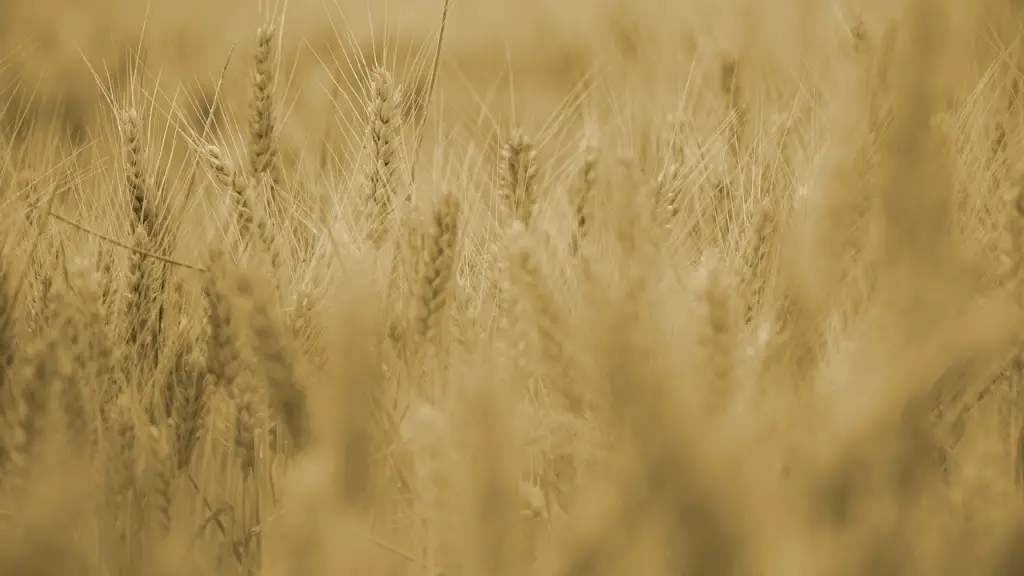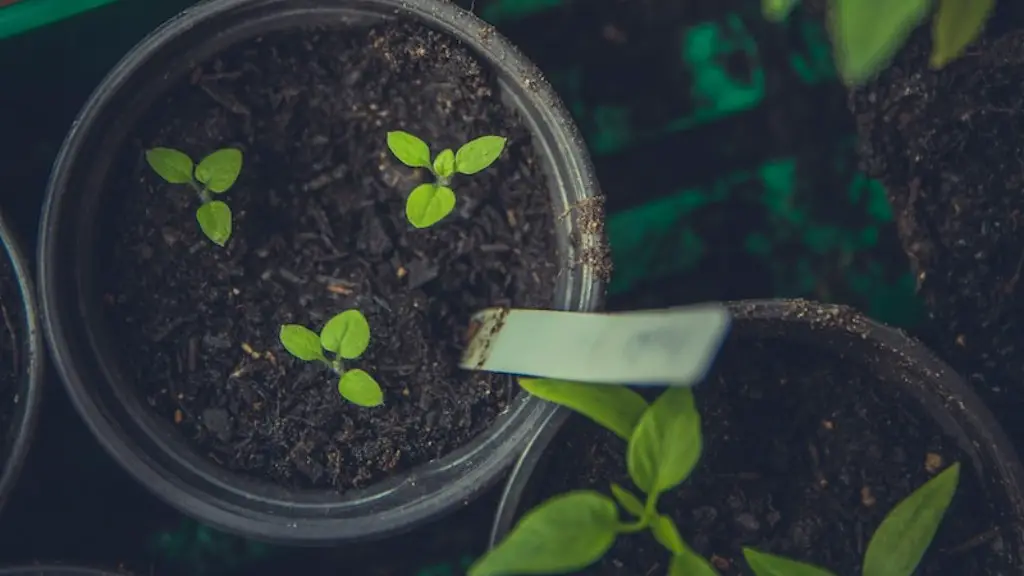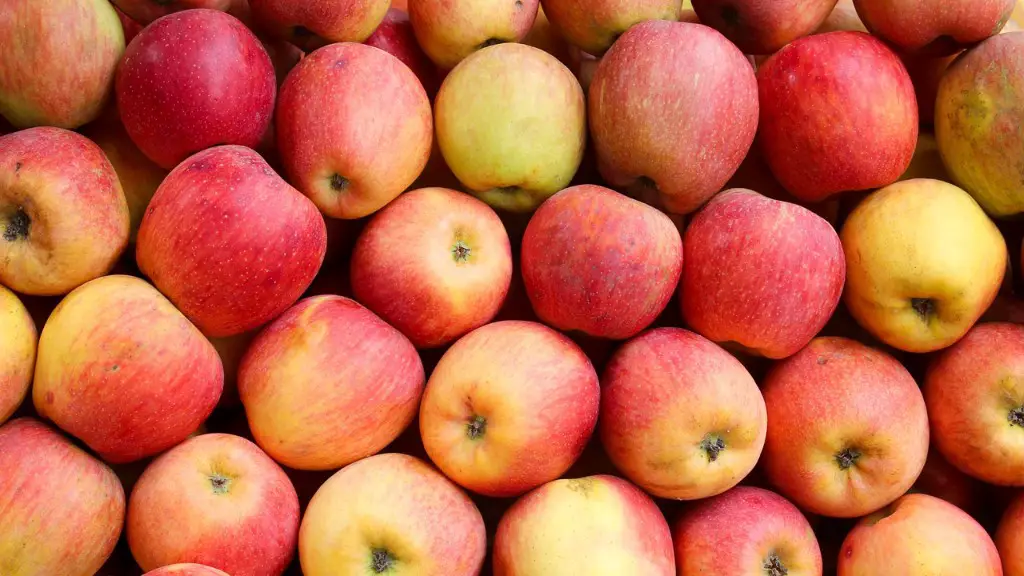In many developing countries, agriculture is the main source of income and employment. Agriculture plays a vital role in the economic development of a country. It contributes to the Gross Domestic Product (GDP), provides raw materials for industries, and creates employment opportunities. Agriculture also helps in reducing poverty and hunger. Development of agriculture sector leads to overall development of the country.
The role of agriculture in development is to provide food, fiber, and other products and services that support human life and economic activity. Agriculture plays a major role in most economies, especially in developing countries, where it employs a large share of the workforce and generates a significant share of GDP. Agricultural products are also a major source of export earnings and foreign exchange for many countries.
Why does agriculture contribute to the development of a society?
Agriculture is an important part of a local community; in that it contributes to our food supply and provides economic as well as environmental impacts. For agricultural operations to function and continue, they require support systems and facilities (infrastructure), to remain viable. This includes transportation systems to move goods to market, storage and processing facilities, and other support services. A strong agricultural infrastructure is essential for the long-term success of the agricultural industry and the communities that it supports.
Agriculture is one of the most important aspects of our lives – it is the source of our food supply. No matter where you are in the world, the food you are eating has come from somewhere, and all roads lead back to agriculture.
Without agriculture, we would not be able to survive as a species. It is essential for our survival, and we must do everything we can to protect and nurture it.
What is the relationship between agriculture and development
agriculture has been a major source of economic growth and development throughout history. As the provider of food, it is a cornerstone of human existence. As a furnisher of industrial raw materials, it is an important contributor to economic activity in other sectors of the economy.
Agriculture is the world’s largest industry. It employs more than one billion people and generates over $13 trillion dollars worth of food annually. Pasture and cropland occupy around 50 percent of the Earth’s habitable land and provide habitat and food for a multitude of species.
What are the 5 roles of agriculture?
Agriculture is an important source of jobs for many countries. It is also a source of foreign currency, and a diversification of the economy. Food security is another important role of agriculture, as it supplies other industries with raw materials.
The agricultural sector is the backbone of Pakistan’s economy and plays a vital role in the country’s development. Agriculture accounts for 18.9% of Pakistan’s GDP and employs 42.3% of the labor force. The sector is also a major source of foreign exchange earnings, with agricultural exports accounting for about 10% of Pakistan’s total exports.
The importance of agriculture in Pakistan cannot be overstated. The sector is a major source of livelihood for a large majority of the population and is a key driver of economic growth. The government is therefore committed to supporting the development of the sector and ensuring that farmers have the resources and information they need to be successful.
How does agriculture contribute to the economy?
Agriculture is a critical sector of the economy and can play a significant role in reducing poverty and promoting economic growth. Agricultural production contributes to economic growth through its linkages with the rest of the economy, and job creation as a result of agricultural activity can have a significant impact on reducing poverty. Agricultural policy reform, investments in agricultural research and development, and improvements in agricultural productivity can all contribute to reducing poverty and promoting economic growth.
In recent years, there has been a renewed interest in rural development, as agriculture has become more profitable. Economic experts have found that investing in the agricultural sector can reduce poverty and boost local development. There are a number of ways to invest in agriculture, such as providing training and support to farmers, investing in infrastructure, and improving access to markets. By investing in the agricultural sector, we can improve the lives of those who live in rural areas and help to boost the economy.
Why is agricultural development important two point
Agriculture plays a vital role in the Indian economy. It is the main source of livelihood for about 58% of the country’s population. It contributes about 17% to the country’s GDP. The sector is also a major source of export earnings. Agricultural development is therefore crucial for the country’s economic development and prosperity.
The government has been taking various steps to boost agricultural production and productivity. These include providing farmers with access to credit, technology, and markets; investing in irrigation and infrastructure; and improving agricultural Extension services. The government’s recent initiatives such as the Pradhan Mantri Fasal Bima Yojana and Pradhan Mantri Krishi Sinchai Yojana are also helping in improving the sector’s performance. However, there is still a lot to be done to make Indian agriculture truly prosperous.
Agriculture provides both jobs and economic growth in many communities. holding agricultural-based events, such as crop and livestock judging competitions and 4-H exhibits at their county fair, are just some of the ways in which these communities benefit. having Farmers Markets where smaller farmers can interact directly with consumers is another great way for communities to capitalize on the agricultural industry.
What is the impact of agriculture?
Agriculture nay be one of the most important contributors to environmental degradation. It causes a number of environmental issues including climate change, deforestation, biodiversity loss, dead zones, genetic engineering, irrigation problems, pollutants, soil degradation, and waste. Many of these environmental problems are caused by the way we use and manage our agricultural land. For example, the conversion of natural habitats to agricultural land causes deforestation and loss of biodiversity. The way we farm can also lead to soil degradation and pollution. And the use of pesticides and other chemicals can cause serious environmental damage.
While agriculture can have negative impacts on the environment, it can also have positive impacts. For instance, agriculture can trap greenhouse gases within crops and soils, or mitigate flood risks through the adoption of certain farming practices. These positive impacts can help offset the negative impacts of agriculture, and help to protect the environment.
Why agriculture is the backbone of the economy
Agriculture is a vital sector of the economy, providing food and raw materials for industry. It is, therefore, essential for poverty reduction and economic growth.
There are several reasons why agricultural development is essential for economic development. First, agriculture is the main source of food and nutrition for the population. Without adequate food security, people cannot lead healthy and productive lives. Second, agriculture provides raw materials for industries, such as textiles, paper, and other manufactured goods. Third, agricultural development helps to create employment opportunities, particularly in rural areas. This is important for reducing poverty and promoting economic growth.
Fourth, agriculture is a major source of foreign exchange earnings for many developing countries. Agricultural exports can help to finance other sectors of the economy, such as infrastructure and health care. Finally, agriculture can help to conserve the environment and promote sustainable development.
There are many challenges to agricultural development, such as climate change, land degradation, and water scarcity. However, with the right policies and investments, agriculture can be a powerful tool for economic development.
Agricultural sector plays a vital part in a country’s economic growth cycle. This has already made a major contribution to advanced countries’ economic growth, and its position in less-developed countries’ economic development is vitally important.
In recent years, the agricultural sector has been playing an increasingly important role in the economic development of less-developed countries. The sector has made a significant contribution to their GDP growth, employment, export earnings and poverty reduction.
There are several reasons for the sector’s growing importance. Firstly, the world population is continuing to grow, and with it the demand for food. Secondly, incomes are rising, particularly in developing countries, leading to increased demand for higher-value food items. Thirdly, the sector is becoming more efficient and productive, thanks to technology and innovation. And finally, there is a growing focus on environmental sustainability, which is creating new opportunities for the agricultural sector.
The sector’s future looks bright, and it is poised to make an even bigger contribution to the economic development of less-developed countries in the years ahead.
What are the examples of agricultural development?
Agricultural development is a process that involves the improvement of existing agricultural methods and the introduction of new ones. It is usually undertaken to increase productivity, improve the quality of products, or to make farming more efficient and economical. Agricultural development may also aim to improve the social and economic conditions of those involved in agriculture.
Soil: The physical and chemical properties of the soil have a great influence on the type of crops that can be grown and the methods of cultivation that can be used.
Climate: The climate influences the rate of growth and development of crops, the duration of the growing season, the amount and distribution of rainfall, and the incidence of pests and diseases.
Conclusion
The role of agriculture in development is to provide food security and economic growth. Agriculture is the main source of livelihood for rural communities and plays a significant role in the overall economy. In many developing countries, agriculture is the largest sector of the economy.
The role of agriculture in development is to provide food security and economic growth. Agriculture is the main source of food security and livelihoods for people in developing countries. It is also a key driver of economic growth, accounting for a significant share of GDP and employment in many developing countries.





